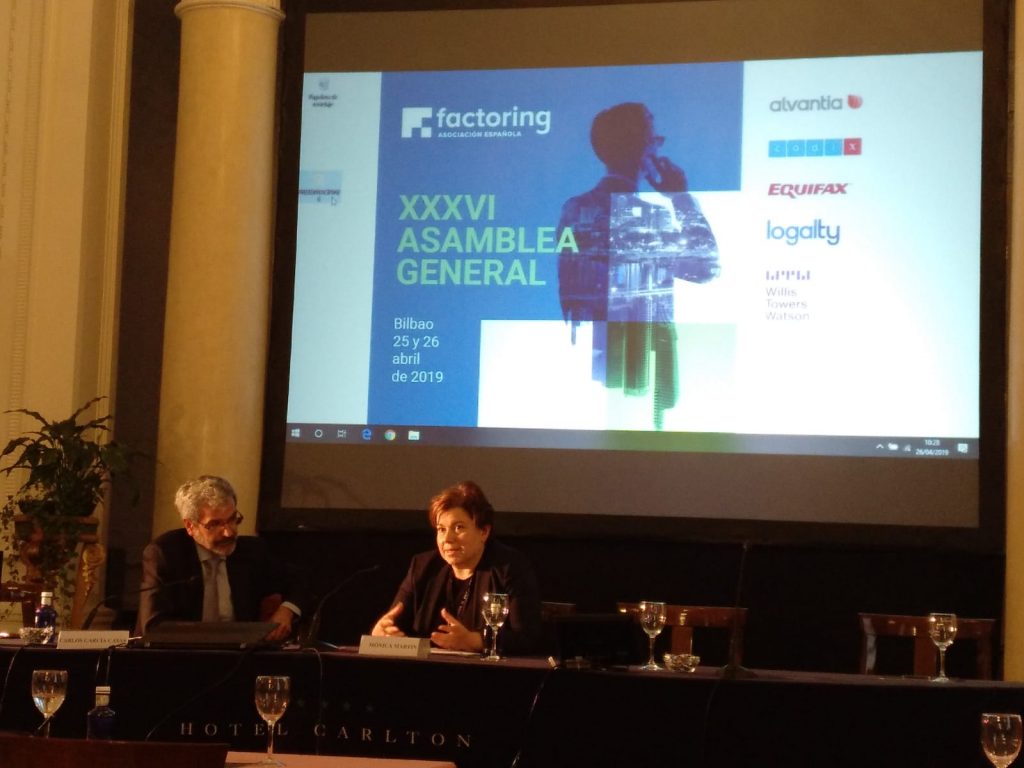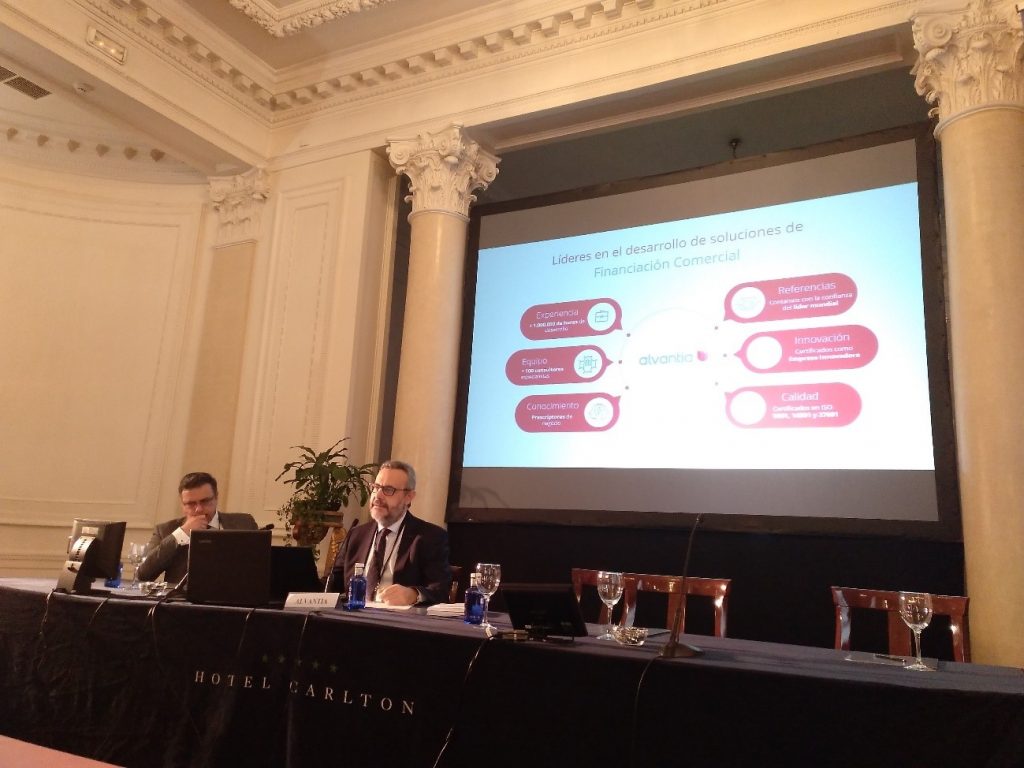On 25 and 26 April, the Spanish Factoring Association (AEF) held its thirty-sixth General Meeting at the emblematic Hotel Carlton in Bilbao. Once again, Alvantia sponsored this event, which brings together the main players in the commercial finance industry in Spain.
The Meeting was opened by Carlos García Casas, chairman of the AEF, who highlighted the healthy state of Factoring and Confirming operations in our country. According to García Casas, the incorporation of innovative tools and digital technology into these financing systems has been key to their growth compared with other traditional payment systems. The expert asserted that following the good results recorded in 2018 (a year in which Factoring and Confirming accounted for no less than 19.4% of GDP), “the market will continue to grow”, estimating an increase of between 5% and 10% in 2019. To conclude his speech, García Casas recalled the importance of using the single format for Confirming remittances.
The Meeting agenda included interesting presentations such as the one given by Lluis Sagrista (Caixabank) on electronic invoicing, regarding which he stated that, although in theory “it should be completely compatible with Factoring”, in practice there are three fundamental aspects that “make them incompatible”:
– The fact that the financial sector opted too soon for electronic invoicing.
– The lack of interoperability between the major electronic invoicing platforms.
– The Factoring industry still has to change its circuits to implement electronic documentary supports.
During the Meeting the interest of the AEF in introducing Blockchain technology into the Factoring industry with the main aim of reducing fraud was also evidenced. Alma María Abad (Caixabank) delivered a presentation on this space in which the advantages that the use of this insuppressible technology can bring to the industry were expounded, including most notably the ability to avoid the multiple assignment of a single commercial credit by one assignor to more than one Factor (Factoring Company).
During the second day of the event, Mónica Martín Blanco (Key Asset Consulting) reviewed several examples of different Integrated Supply Chain (ISC) solutions in Asian countries. She indicated that in many of these countries it has been detected that the main players in the supply chain prefer the information to be handled by an independent and impartial third party that can reduce opportunistic behaviour. “It has been decided that this information will be processed by financial institutions due to the security, guarantee and stability they offer,” said Martín Blanco, who ended his presentation by highlighting the important role of confirming in various developing countries: “It is used as a lever to break the customs and habits that anchor these countries in obsolete forms of financing that undermine the evolution of other social structures.”

Afterwards, the CEO of Alvantia, Roberto Gutiérrez, had the opportunity to convey to the associates the advantages of integrating in their systems our commercial finance platform, a tool with great functional capacity, a constantly growing innovative architecture which is easy to integrate, use and access. A solution that was born as the result of the synergy of a team of senior commercial finance consultants, with a long track record in the industry, and a group of technicians specialised in the most advanced technologies. A heterogeneous team that have been able to combine experience and innovation to lead the development of commercial finance solutions in Spain.

Subsequently, Joseba Madariaga (Caja Laboral) addressed the current economic situation in Spain in his presentation. Although he highlighted its good health in the short term, he expressed uncertainty as to the medium and long term, pointing out the main challenges that the country will have to face in the future: high indebtedness, the pension system, low productivity and the situation of the labour market. The event ended with a round-table discussion moderated by Carlos Dalmau (Banco Sabadell) with the participation of Alma María Abad (Caixabank), Nieves González (BNP Paribas Factor), María Lafita (Credit Agricole L&F) and Mónica Muñoz (Deutsche Bank). Among other topics, they talked with the rest of the associates about the future of FinTech within the sector, an issue on which there was a clear consensus: they have reached the market covering a very specific niche, focusing on a target that is often not covered by the big commercial finance operators. This is why FinTech will not become a substitute for banks, but rather it will supplement them.


